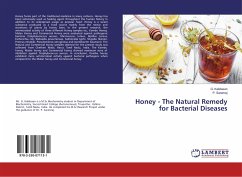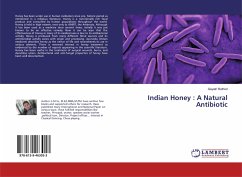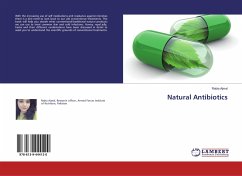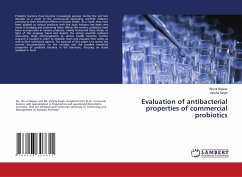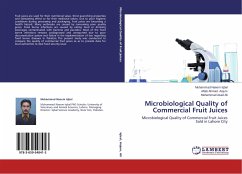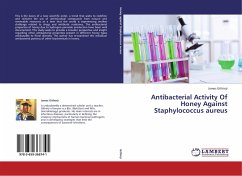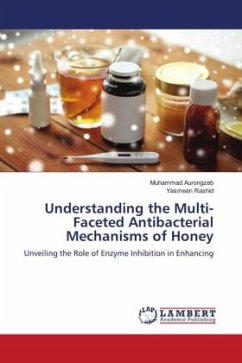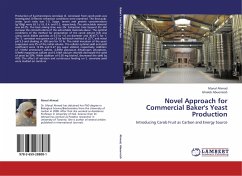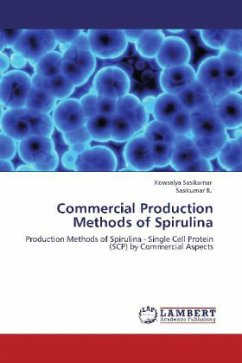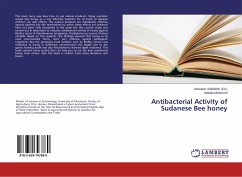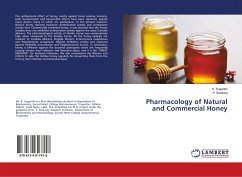
Pharmacology of Natural and Commercial Honey
Versandkostenfrei!
Versandfertig in 6-10 Tagen
24,99 €
inkl. MwSt.

PAYBACK Punkte
12 °P sammeln!
The antibacterial effect of honey, mostly against Gram positive bacteria, both bacteriostatic and bactericidal effects have been reported, against many strains, many of which are pathogenic. In the present research, Natural honey showed maximum Antimicrobial activity and Antioxidant activity than Commercially marketed honey. It was showed that the honey samples does not exhibited antimicrobial activity against the yeast Candida albicans. The pharmacological activity of Vembu honey was comparatively high when compared to the Kombu honey. All the honey samples are resistant to Candida albicans, ...
The antibacterial effect of honey, mostly against Gram positive bacteria, both bacteriostatic and bactericidal effects have been reported, against many strains, many of which are pathogenic. In the present research, Natural honey showed maximum Antimicrobial activity and Antioxidant activity than Commercially marketed honey. It was showed that the honey samples does not exhibited antimicrobial activity against the yeast Candida albicans. The pharmacological activity of Vembu honey was comparatively high when compared to the Kombu honey. All the honey samples are resistant to Candida albicans, Shigella flexneri, Enterococcus casseliflavus and Pseudomonas aeruginosa. Highest inhibitory activity was observed against Klebsiella pneumoniae and Staphylococcus aureus. In conclusion, honey is effective against the bacterial pathogens which are frequently causing Urinary tract infection and Neonatal sepsis, and it is the "SWEET MEDICINE" for bacterial infections. We also recommend the Women and Infants to take the Vembu honey regularly for preventing them from the Urinary tract infection and Neonatal sepsis.



